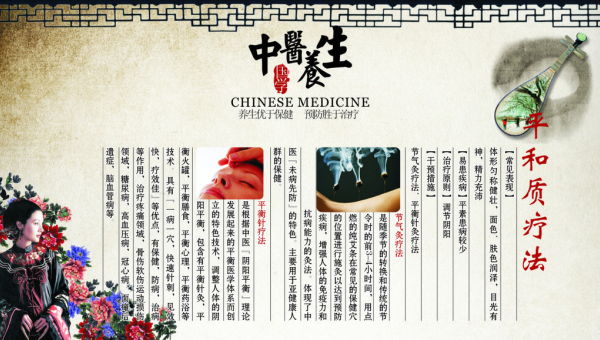Blood is essential to woman, but menstruation, pregnancy, delivery and breast-feeding tend to consume blood and damage qi, eventually leading to gynecological diseases. So regulating of qi and blood is also one of the main therapeutic methods used to treat gynecological diseases. In syndrome differentiation, it must be made sure whether the diseases involves qi or blood and whether they are of cold or heat, or of asthenia or sthenia. Qi and blood depend on each other, so qi must be regulated together with blood and vice versa.
If the disease mainly involves qi, the treatment focuses on regulating of qi supplemented by balancing blood. The asthenia syndrome is treated by reinforcing therapy and the stagnation syndrome is treated by promoting therapy with the supplementation of nourishing blood or activating blood. If the disease mainly involves blood, the treatment mainly concentrates on regulating of blood with the supplementation of harmonizing qi. Blood asthenia syndrome is treated by supplementing blood and nourishing blood; blood stasis is treated by activating blood and resolving stasis; blood heat is treated by clearing away heat and cooling blood; blood cold is treated by warming meridians to disperse cold; massive bleeding or continuous bleeding is treated by astringing blood to stop bleeding.

If diseases involve both qi and blood, they should be treated by proper application of the therapeutic methods mentioned above. For the asthenia of both qi and blood, it should be treated by nourishing both qi and blood; for the disorder of qi asthenia and blood stasis, it can be treated by supplementing qi combined with activating blood and resolving stasis; for the disorder of blood asthenia and qi stagnation, it may be treated by supplementing blood combined with regulating qi and dredging stagnancy. In such a way, the supplementation of asthenia will not lead to stagnation of pathogenic factors and the attack on pathogenic factors will not damage qi.







